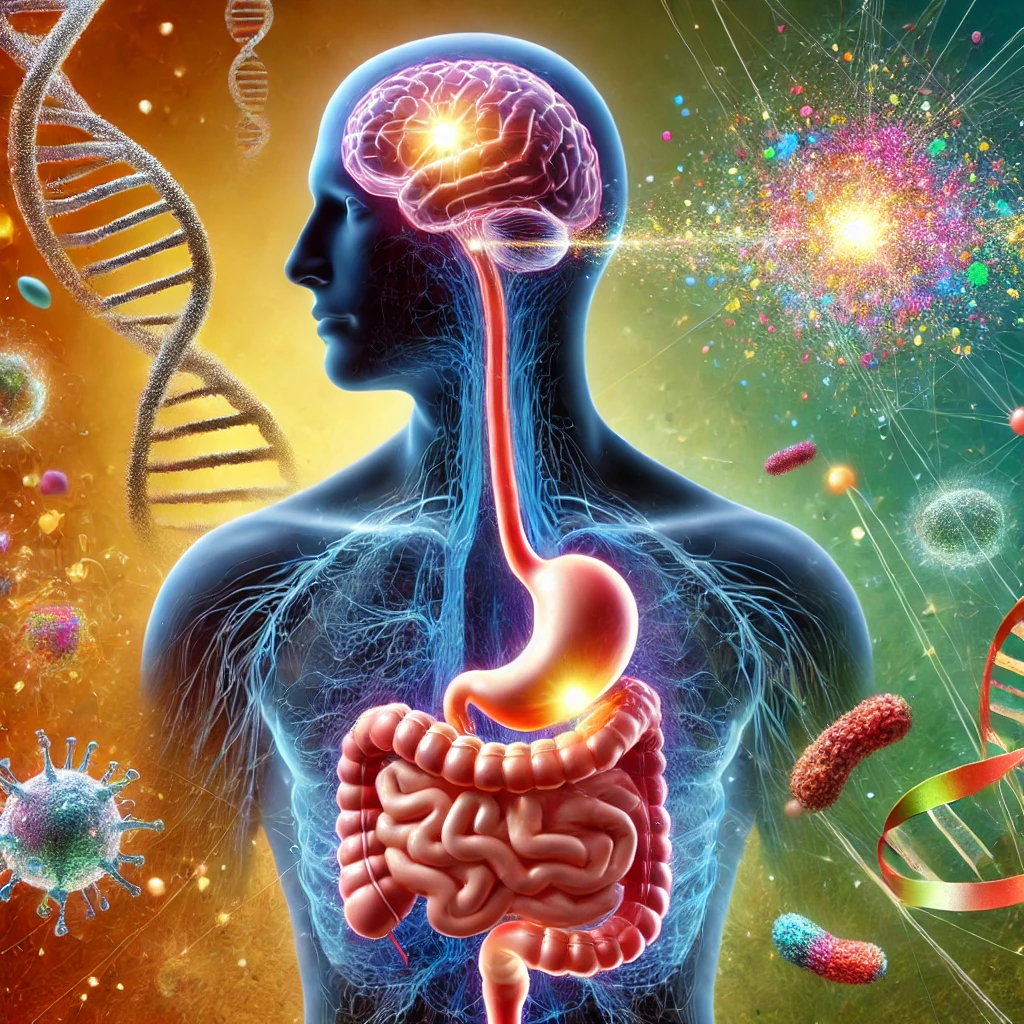Understanding the Mind-Body Connection Through Gut Health
Ever wondered why you feel “butterflies” in your stomach before an important event or why a comforting meal can uplift your spirits? These everyday experiences are manifestations of the gut-brain connection, a sophisticated communication network that links the digestive system and the brain. Termed the gut-brain axis, this relationship reveals how gut health can influence not just physical health but also mood, stress levels, and susceptibility to mental health disorders.
The Microbiome: Our Internal Ecosystem
At the heart of this connection is the gut microbiome—a complex ecosystem of trillions of microorganisms, including bacteria, fungi, and viruses. These microbes play pivotal roles in digestion, nutrient absorption, and immune function. However, their influence extends far beyond the gut, affecting neurotransmitter production and brain function. Emerging research has highlighted how imbalances in the gut microbiome—termed dysbiosis—can contribute to mental health issues like anxiety, depression, and even neurodevelopmental disorders.
Exploring the Science of Gut-Brain Communication
The gut-brain axis operates through several interconnected pathways:
Nervous System Communication: The vagus nerve acts as a bidirectional highway between the gut and brain, transmitting signals influenced by the gut microbiota. Research in Cell Reports (2020) highlighted how specific gut bacteria stimulate vagus nerve activity, directly influencing brain function and emotional regulation.
Neurotransmitter Production: Gut bacteria are involved in the synthesis of critical neurotransmitters like serotonin (up to 90% of which is produced in the gut), dopamine, and GABA. These chemicals are vital for regulating mood, stress, and sleep patterns.
Immune System Modulation: Dysbiosis can lead to chronic inflammation, which has been linked to depression and anxiety. Studies in Lancet Psychiatry (2023) found that inflammatory markers associated with poor gut health correlate with increased risk of mental health disorders.
Latest Research on Mental Health and Gut Microbiota
Emerging research provides compelling evidence for the role of gut health in mental well-being:
Stress and Anxiety Research Findings
A 2021 study in Nature Microbiology explored how gut microbiota composition affects cortisol levels, the primary stress hormone. Participants with diverse gut microbiota showed lower cortisol reactivity under stress compared to those with dysbiosis. Another investigation in Frontiers in Psychiatry (2022) demonstrated that probiotic supplementation with Lactobacillus rhamnosus significantly reduced symptoms of social anxiety in adults.
Depression and Gut Health Connection
The connection between gut health and depression has been studied extensively. Research published in Molecular Psychiatry (2022) identified specific bacterial strains, including Bifidobacterium, as potential modulators of serotonin synthesis. The study highlighted the potential of psychobiotics in alleviating depressive symptoms. A randomized controlled trial in Gut Microbes (2020) found that dietary interventions rich in fermented foods reduced depression scores in 64% of participants after 12 weeks.
Neurodevelopmental Disorders and Gut Microbiome
Preliminary studies suggest a link between gut microbiome composition and neurodevelopmental conditions like autism and ADHD. A review in Frontiers in Neurology (2020) emphasized the need for further exploration of how gut health interventions could benefit these populations.
Practical Ways to Improve Gut Health
Promoting a healthy gut-brain connection involves simple, evidence-based lifestyle changes:
Essential Dietary Considerations
Incorporate fiber-rich foods like fruits, vegetables, and whole grains to nourish beneficial gut bacteria. Include fermented foods (e.g., yogurt, kimchi, sauerkraut) to increase dietary probiotics.
Understanding Probiotic Supplementation
While promising, consult a healthcare provider before starting probiotics. Clinical trials are ongoing to determine strain-specific benefits for mental health.
Managing Stress for Gut Health
Chronic stress can disrupt gut microbiota. Practices like mindfulness, yoga, and deep breathing have been shown to restore gut balance.
The Importance of Quality Sleep
Sleep deprivation negatively impacts the gut microbiome. Aim for 7–8 hours of quality sleep per night to maintain gut and mental health.
Looking to the Future of Gut-Brain Research
The gut-brain connection represents a paradigm shift in understanding mental health, underscoring the profound impact of gut health on emotional resilience and cognitive function. Through dietary adjustments, stress reduction, and professional guidance on probiotics, individuals can harness this connection to enhance their mental and physical well-being.
Moving Forward with Gut Health
As science continues to unravel the mysteries of the gut-brain axis, its potential for mental health interventions becomes ever more evident. By prioritizing gut health, you’re not only nurturing your digestive system but also fostering a happier, healthier mind.
Scientific References
Foster, J. A., & McVey Neufeld, K. A. (2013). Gut microbiota and the brain: Implications for depression and anxiety. Current Opinion in Gastroenterology, 29(1), 120–128.
Cryan, J. F., & Dinan, T. G. (2012). Mind-altering microorganisms: The impact of the gut microbiota on brain and behaviour. Nature Reviews Neuroscience, 13(4), 180–190.
Dinan, T. G., Stilling, R. M., Stanton, C., & Cryan, J. F. (2015). Collective unconscious: How gut microbes shape human behavior. Journal of Psychiatric Research, 63, 1–9.
Moloney, R. D., Desbonnet, L., Clarke, G., Dinan, T. G., & Cryan, J. F. (2014). The microbiome: Stress, health, and disease. Mammalian Genome, 25(1–2), 49–74.
